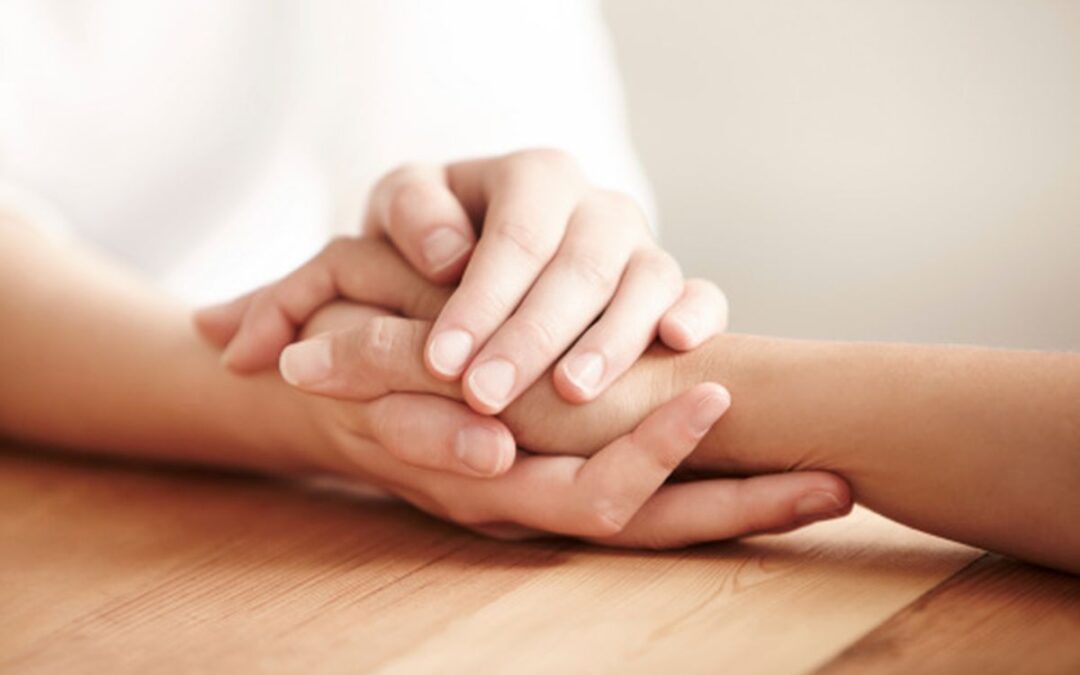Everyone can probably think of a person in their life whom they turn to in difficult times. What is it about these people that make us willing to open up to them, that lifts our mood and helps us move forward? Upon reflection, most of us would probably say that he or she is “a good listener”. This ability to listen, to hear and to empathise is a quality that is on the decline in our society and the current pandemic has not helped. With the isolation brought about by Covid, many of us have lost our sense of self, and in the process, our curiosity. We make assumptions as to the experiences of others; we project our own feelings, emotions and anxieties onto those around us. Rather than saying, “I know how you feel”, we need to learn to ask “Tell me more”.
This Shabbat, Shabbat HaGadol, the Shabbat before Passover, we will read Parashat Tzav. “Tzav”, which means “To command, to obligate”, also shares a root with the word “Tzavta” meaning “Togetherness”. The Parasha begins with a description of various animal sacrifices, korbanot (Vayikra 6:1-8:25). While the graphic and detailed descriptions of the proceedings may seem archaic and irrelevant in modern times, the symbolism and lessons taught are timeless.
The thanksgiving offering, the korban todah, in particular, is a curious one (Vayikra 7:11-12). It is an elaborate offering of bread, wafers, cakes and oil. The Rabbis explain that this offering was to be given to the person who had just overcome a significant trial. The Mishnah teaches that this elaborate offering included no less than thirty loaves of bread, and that it was to be eaten on the day it was offered. Unusual, as other offerings could be consumed over two days. The prescription of consuming an offering in one day is usually reserved for a compulsory sacrifice (Menachot 7:1). Indeed, publicly recognizing G-d’s greatness in appreciation for coming through a personal trial is compulsory. Clearly, however, there is no way that one person could consume the entire 30-loaves offering by himself. There would be no choice but to invite others to partake of the meal as well.
Indeed, the Abarbanel explains that “there was no way that he could consume this offering in such a short time. Obviously the Torah encouraged him to invite family, friends and acquaintances to join him in feasting and in rejoicing. In this assembly, they would ask him to tell his story and question him about what prompted his thanksgiving.” This, in turn, would lead to a more communal thanksgiving and praising of G-d for his miracles. In one essay, Rabbi Tzvi Hersch Weinreb brings the teachings of Rabbi Elimelech Bar Shaul who explains that storytelling and narration engender the listener to “learn skills of empathy, to see beyond themselves, and to gain the special joy that can only come in the company of other people”.
The Passover Seder itself is a lesson in empathy. We read the story, we taste various foods to try and feel as though we are sharing in the experiences of our ancestors. We are commanded to tell the story and imagine that we ourselves are being brought out of Egypt on Passover. We go through great lengths to tell the story, to listen to the story, to involve our entire bodies in the experience. We open our doors and welcome everyone to our table, and we consider all possible audiences in the narrative of the Exodus. It is a challenging commandment but one that we should learn to carry over to our everyday lives past Leil Haseder.
Empathy is “the ability to step into the shoes of another person, aiming to understand their feelings, perspectives, and to use that understanding to guide our actions” (R. Krznaric). It is not pity, it is discovery and it is at the heart of social cooperation.
We begin to show signs of empathy in infancy. Toddlers under 18 months of age will even try to comfort a parent who is upset. Parents who promote and model empathy raise more empathetic children. It begins with curiosity, it requires listening without prejudice, it requires opening ourselves to other possibilities, it requires imagination and it requires heart. Yet despite the demands, empathy rewards us with decreased anxiety and stress, increased happiness and increased connectedness. Empathy brings us closer together even as we are separated from many of our loved ones and helps us learn to appreciate what we have, despite how hard things may seem. It elevates our lives and that of those around us, and at its heart, it is a fundamental Jewish value.
Shabbat Shalom and wishing everyone a Chag Kasher Ve Sameach!
Dr. Laura Segall
Head of School

